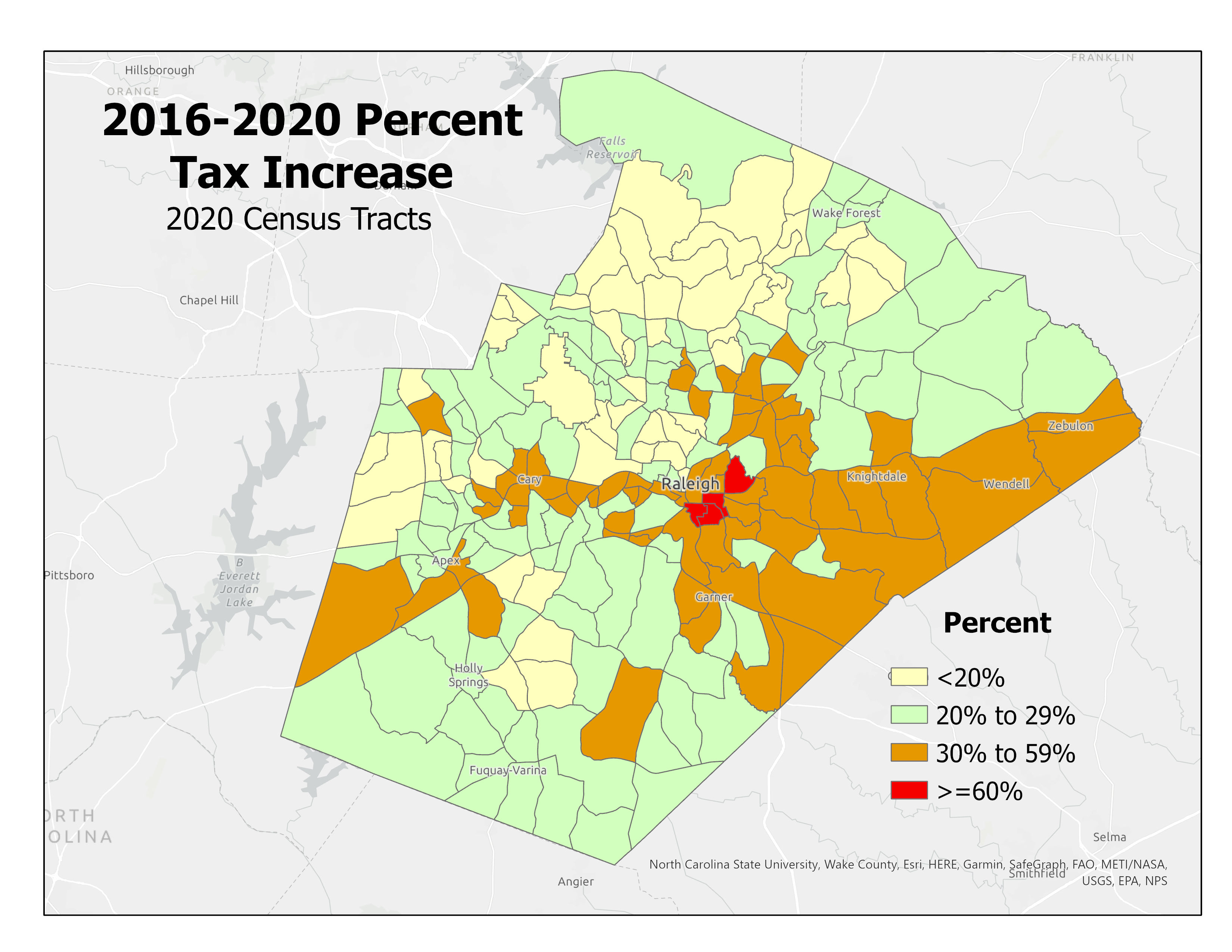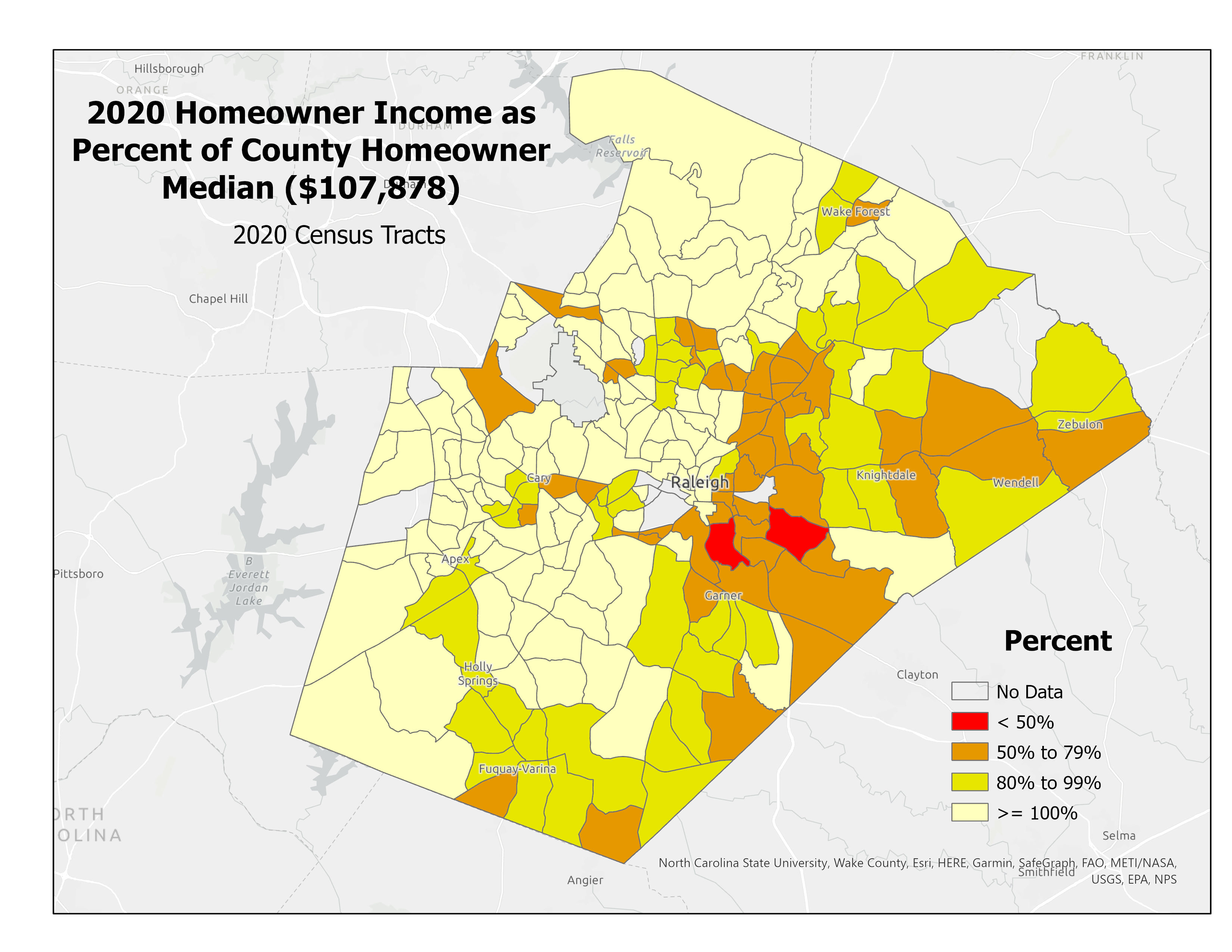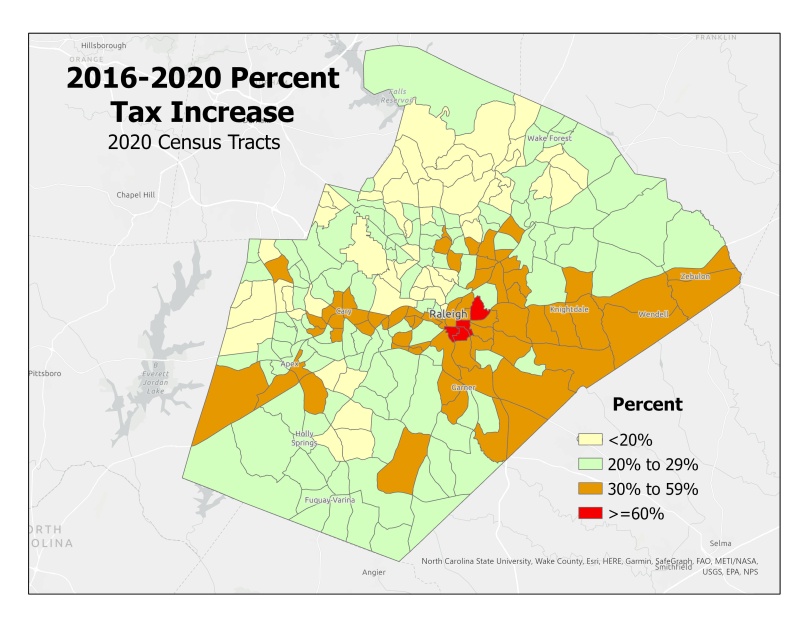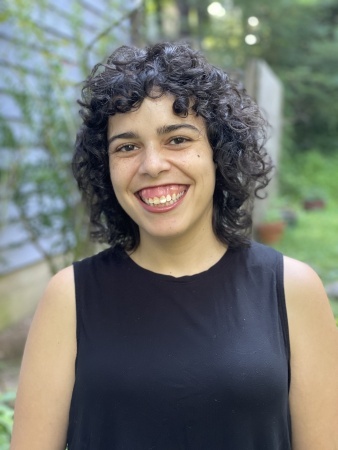Historic discrimination in U.S. housing policy has been a driver of inequalities that persist today. At Habitat Wake, we know we have a responsibility to raise awareness about the continuing effects of these policies and to advocate for opportunities that increase affordable housing access for all.
Every year, Habitat Wake sets policy priorities to guide our advocacy work. Below, we will take a deeper dive on some of these priorities and share more about how each works to address historic housing discrimination.
Policy Priority: Housing cost solutions for homeowners to gain long term affordability
Property taxes have increased significantly in Wake County as demand for housing grows with the population. Property taxes are the main source of revenue for local governments, and fund basic services like trash pick up, parks, and more. But, the property tax is not designed to be sensitive to incomes, so homeowners with low incomes may pay similar taxes to homeowners with high incomes, depending on the value of their home.
Habitat Wake conducted an analysis of property tax increases from 2016-2020 that shows that tax increases disproportionately burden neighborhoods where Black families were historically segregated and remain underserved.
Areas like College Park in Raleigh have experienced land valuation increases of up to 360%. Despite these large increases in value, not all residents have experienced a proportionate increase in household income. That’s why residents in South and Southeast Raleigh are experiencing the most dramatic increases in property taxes – between 65% and 151% since 2016. In the South Park neighborhood, property taxes increased by 125%, but household income increased only 15%.


Disproportionate increases in property tax bills have put homeowners at risk of displacement. Habitat Wake, along with partner organizations like ONE Wake, campaigned for a local property tax relief program to bring cash assistance to these homeowners. But, local governments do not have the authority to do a relief program for property taxes, and there is no political will at the state level to reform existing, but inadequate, relief programs.
Preventing displacement of homeowners in historically Black neighborhoods is a critical strategy for advancing racial equity in housing. Habitat Wake and its partners asked for – and won – county funding to address other housing costs that put homeowners at risk of losing their home. Now, homeowners under 80% of area median income (AMI) have access to $1.3 million in major repair funding, which would fund system-wide repairs in someone’s home, such as an entire HVAC and ductwork replacement. Homeowners can also access an additional $1.4 million in emergency heating and cooling assistance to help pay overdue bills. Learn more about our recent wins resulting in almost $3 million in home repair and utility assistance funding here!
Policy Priority: Equitable access to transit, including bus routes aligned with affordable housing and increased access to transportation options for Habitat homeowners
In our community, the automobile is the primary mode of transportation for residents. Yet many low-income residents may lack access to reliable vehicles, making it difficult to get to and from work, schools, medical care, and recreational opportunities. Auto transport can also be a financial burden. Transportation is the second highest household cost after housing, and together they can add up to half of a household’s budget. Access to public transit results in greater economic opportunities for residents and can reduce transportation costs and commuting time, which are often substantial.
Past transportation policy on the federal level has also had long-lasting consequences, exacerbating racial and economic disparities in America. The construction of the highway system in the 1950s and 1960s leveled entire African American neighborhoods. One example is Durham’s African American Hayti community, a vibrant community that grew Black residents’ economic power and wealth. Hayti was destroyed, and residents displaced, with the construction of the East End Connector (Hwy 147). Displacement from the construction of the national highway system concentrated poverty and put African Americans further from opportunity. These residential patterns still exist today.
To correct these inequities, Habitat Wake advocates for robust public transit that connects communities with jobs, services, and affordable housing. This means advocating for bus routes that extend to those who need it most, such as those in affordable housing. In 2021, we advocated for all bus stops located close to affordable housing to include basic amenities – a shelter and bench. In 2022, GoRaleigh agreed to update these bus stops to ensure that these residents can safely and comfortably access public transit.
Policy Priority: Policies that reduce the risk of displacement and support residents at the lowest income thresholds
Displacement is a growing concern as more people move to our area every day and demand for housing grows, particularly close to downtown areas where many historically Black neighborhoods exist. To prevent displacement, we advocate for housing cost relief that helps keep existing homeowners in their homes, such as the $3 million in home repair and utility assistance funding we won in 2023. There is a huge need for much deeper investments in these types of programs, with capacity building resources for organizations to deploy these resources effectively and hand-in-hand with community members. In Raleigh, the Enhanced Homeowner Repair program supports homeowners along Bus Rapid Transit corridors who need home repair assistance. Southeast Raleigh Promise works with Rebuilding Together of the Triangle and Habitat Wake to engage residents in the program and ensure that homeowners can access affordable repairs.
Policies that prevent displacement of renters are also critically needed. As rent prices go up, less and less landlords are willing to rent to recipients of Housing Choice Vouchers (commonly known as Section 8). This is often referred to as source of income discrimination, though local governments in North Carolina are limited in how they can stop this type of discrimination. Other interventions include improving the voucher program to incentivize landlords and acquisition of existing naturally occuring affordable rental properties to ensure long-term affordability.



